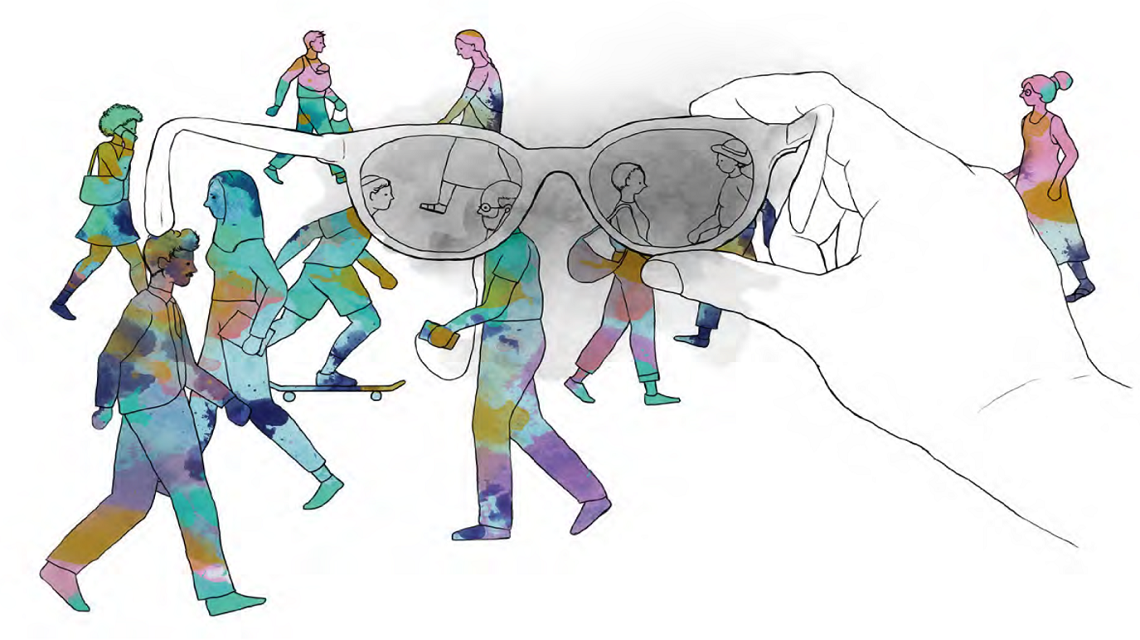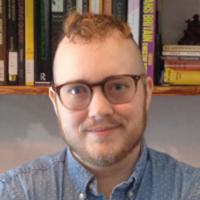
"My mentors at Seattle Central have demonstrated that it is still possible to build classrooms that focus on dialogue, questioning, student-created course materials and mutual responsibility for each other’s learning even in the face of limited resources."
Upon opening my student evaluations from this past autumn, I found that, once again, my pedagogical emphasis on small independent discussion groups had generated polarized responses. As a teaching assistant in the UW Department of History, my main job is facilitating quiz sections attached to large lecture courses. Every Friday, I meet for an hour with groups of twenty-five students to analyze historical documents assigned by the lead instructor, drawing on the content covered in that week’s lectures. From my perspective, small-group dialogue is chief among the manifold delights of historical investigation. Learning to raise evidence-based challenges to colleagues’ interpretations of documents goes hand-in-hand with learning to challenge the authority of historical authors. But while many students profess to love small discussion groups—“because I was able to hear multiple good thoughts at once,” as one survey respondent put it—others feel deprived of sufficient exposure to course content that, ultimately, they will be asked to reproduce in their essays and final exams.
On the one hand, the persistence of this division in my students’ comments demonstrates that, as every instructor knows, you can’t please all of the people all of the time. However, after a fascinating autumn quarter spent exploring questions of critical pedagogy with mentors at Seattle Central College, I recognize that it also reflects a core methodological challenge I face as a graduate-level assistant teacher interested in implementing critical practices in my classroom. Critical pedagogy, as theorized by educators and philosophers such as Paolo Freire and bell hooks, aims to disrupt the traditional hierarchical relationship between instructor and student—purveyor and recipient of knowledge—as a way of encouraging students to use their studies to dismantle wider systems of oppression. As my mentor Anna Hackman put it during a recent professional development workshop organized by Seattle Central’s Critical Pedagogy Institute, it involves “teaching your students, not the material,” while reckoning with both students’ social positionality and your own. While I lacked the vocabulary to theorize my teaching practice in this way prior to my Mellon fellowship, my tendency to emphasize critical tools over “content” in quiz sections stems from a similar ethical orientation.
Observing classes at Seattle Central has given me a more concrete sense of how this kind of student-centered pedagogy can work in practice, particularly under space and time constraints that closely resemble those of the quiz sections I teach. Prof. Gregory Hinckley’s introductory sociology course, for instance, is designed around learning communities—structured groups in which each member has a designated role—and founded on the principle of “community creation of knowledge.” Students write narratives reflecting on their own positionality with respect to key categories of identity and social meaning, such as race or class, demonstrating their engagement with the theory introduced in short lectures. These narratives are then collected into binders, forming the core of a student-created sociology reading list. As I observed firsthand over several classes, this learning communities approach to teaching sociology has several advantages over a lecture format. By asking each student to perform a specific role within the group—for instance as a notetaker or a liaison with the professor—learning communities encourage students to feel responsible for their colleagues’ learning as well as their own, while setting manageable expectations to prevent this responsibility from feeling overwhelming. And grounding the conceptual frameworks of sociology in stories from students’ everyday lives makes it far easier to see how scholarship might inform action to address the inequities many students, especially those in an access-based institution like Seattle Central, face every day.
When it comes to the structure of UW quiz sections, I admit that the small-group naysayers in my quarterly evaluations have a point. However, I would venture that the challenge arises out of UW’s institutional structure and my position within it, rather than pedagogical practice. While I would like to adopt many of the strategies I see demonstrated by my mentors at Seattle Central, I am limited by my role as a Teaching Assistant. Teaching assistantships do not involve the burden of preparing syllabi, writing lectures, or ordering course readers, but they do demand that the assistant carry out the aims of a lead instructor who decides which material to teach students and how to evaluate their learning. The dyadic relationship between teacher and student presumed by theorists of critical pedagogy is replaced by a triad, in which the teaching assistant occupies a tenuous position of power between undergraduates—for whom they are the most direct source of authority—and the usually senior, often-tenured faculty member who occupies the podium at the front of the lecture hall. Thus, our desire to teach students is complicated by the fact that those students, to do well in the course and further their own learning goals, still have to master material assigned by someone else. To be sure, the instructors with whom I’ve been partnered have been gracious, and have all encouraged me to pursue my preferred activity-based, small-group-focused teaching methods, even if they would not take such an approach themselves. But my ability to bring my whole self to the classroom the way critical pedagogy demands is compromised in this arrangement. My own ethics, my own politics, must be squared with those of the professor with whom I am working in an uneven—though so far always amicable—partnership.
From the vantage point I’ve gained this year as a Mellon fellow, I am more keenly aware of the fact that teaching assistantships are hardly comprehensive pedagogical professionalization. The framing of TAships as “training”—often invoked by university administrators when graduate students raise concerns about our salaries or working conditions—simply does not square with the fact that leading a quiz section demands different skills than lecturing at a research university, leading a graduate seminar, or teaching a community college course. But even in my progressive-minded department, faculty discussions about the importance of teaching pedagogy have yet to translate into an expanded graduate curriculum or a systemic provision of options for lead teaching. Summer courses, which were previously the main opportunity for graduate students to develop and deliver their own syllabi, have been drastically reduced over the last four years, and even in this case we face pressure to take few risks with our material because the summer school may cancel our course abruptly if it fails to meet the enrollment threshold. Projects like the Simpson Center’s Reaching New Publics fellowship help expose us to different scholars’ critical practices in the classroom, but these remain competitive opportunities that students must pursue on our own initiative. Considering that humanities students at schools like the University of Washington are especially likely to pursue teaching-focused secondary or post-secondary careers, we stand to benefit greatly from more systematic efforts to make space for us to develop our own voices in the classroom. In particular, I would endorse exploring formal partnerships with access-based institutions like community colleges, where students would have the chance to perform direct classroom service and meet faculty mentors who, most likely, will have trained in a winder range of graduate programs.
All post-secondary humanities departments—whether at research-focused institutions like the University of Washington or access-focused institutions like Seattle Central College—operate under ongoing conditions of scarcity. For some graduate students, and some professors, the introduction of further training in critical pedagogy might seem like just another burden to shoulder in the finite time allotted to us. But my mentors at Seattle Central have demonstrated that it is still possible to build classrooms that focus on dialogue, questioning, student-created course materials and mutual responsibility for each other’s learning even in the face of limited resources. For my part, no doubt there will always be students who want me to take a firmer hand in orchestrating quiz sections, but recognizing the unusual three-part power dynamic I face as a TA has put my quarterly small-group controversy into perspective—and suggested ways in which humanities graduate programs might strengthen their support for students-as-teachers.
Adrian Kane-Galbraith (they/them/their)
Adrian Kane-Galbraith was a 2019 Mellon Collaborative Fellow for Reaching New Publics with Jorge Bayona. Adrian Kane-Galbraith's research focuses on the social, cultural, and political history of the United Kingdom and Commonwealth nations during the twentieth century.
